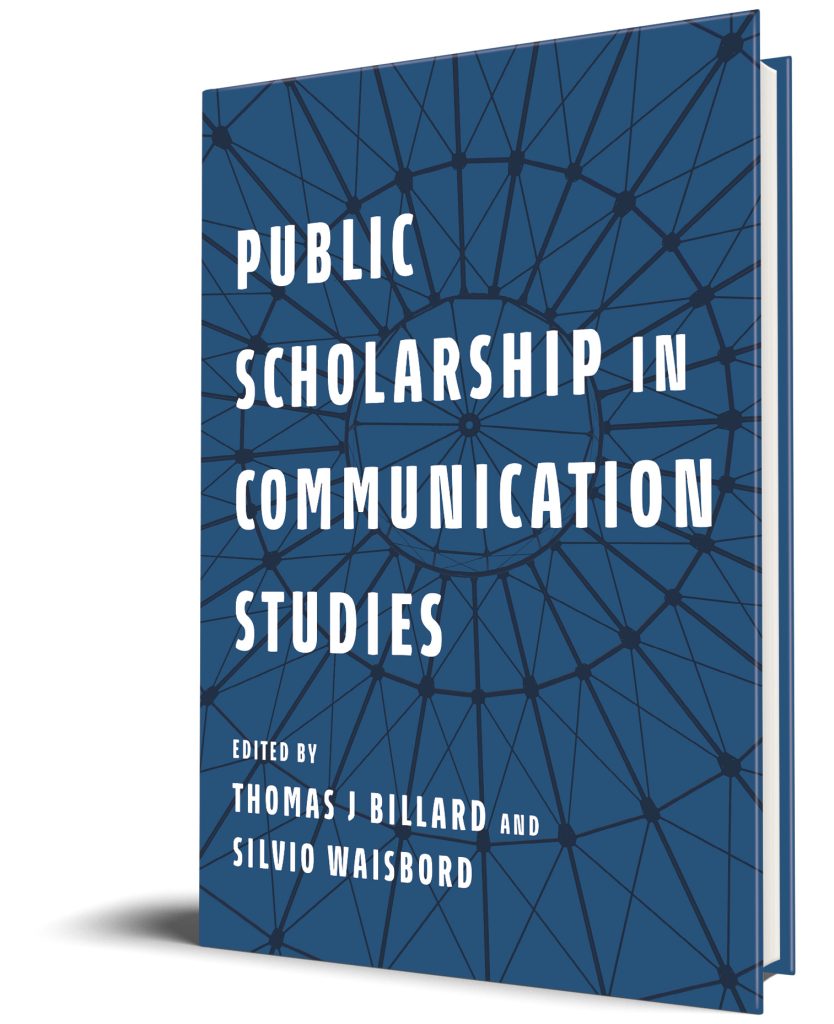The editors of Public Scholarship in Communication Studies, answers questions on their new book.
Q: Why did you decide to write this book?
Both of us had independently written about the importance of public scholarship in communication studies, calling for scholars to take a more public orientation to their work, and to do so in ways that were not centered on publicity and self-branding. But we recognized that there was a dearth of resources for scholars to figure out exactly how to do public scholarship in this way. So, we found it important to join forces and to bring together a wide array of scholars who did exactly the kind of work we were advocating for, so that we could help foment a change in the field.
Q: What myths do you hope your book will dispel or what do you hope your book will help readers unlearn?
We hope this book will help break the neoliberal mindset that many scholars have the “public” scholarship means doing one’s work that is well publicize—doing it for an audience, for the purpose of building a personal brand or increasing one’s profile for financial or professional advancement. We want people to think of public scholarship differently and to change how they understand the relationship between the academy and wider society. Particularly when we study important social problems, the best public work is the work we do in the public interest, with the aim of not self-advancement, but meaningfully contributing our unique skillsets to the mitigation of those problems. Now, that is lofty goal! But we hope that the chapters of this book help make that vision more concrete, showing scholars exactly how they can orient their work toward the public good.
Q: What is your advice to scholars/authors who want to take on a similar project?
Editing a volume like this is not only about having a book done at the end. That is, of course, important, and the book you produce has profound potential to reach scholars you might never be able to influence in another way. But what’s at the heart of organizing an edited volume is building a community of likeminded scholars. So, invest in the labor of building relationships among the people you want to contribute chapters, because the book will be much stronger and have a much more enduring impact if it is amplifying the work of a scholarly community.
Q: What do you like to read/watch/or listen to for fun?
Thomas J Billard: Most of my non-professional media consumption is focused on escapism, so I love standup comedy, cooking programs, high fantasy, and reality competition programs.
Thomas J Billard is an assistant professor in the School of Communication at Northwestern University. Their latest book is Voices for Transgender Equality: Making Change in the Networked Public Sphere.
Silvio Waisbord is a professor at the School of Media and Public Affairs at George Washington University. His latest book is El Imperio de la Utopia: Mitos y realidades de la sociedad estadounidense.

